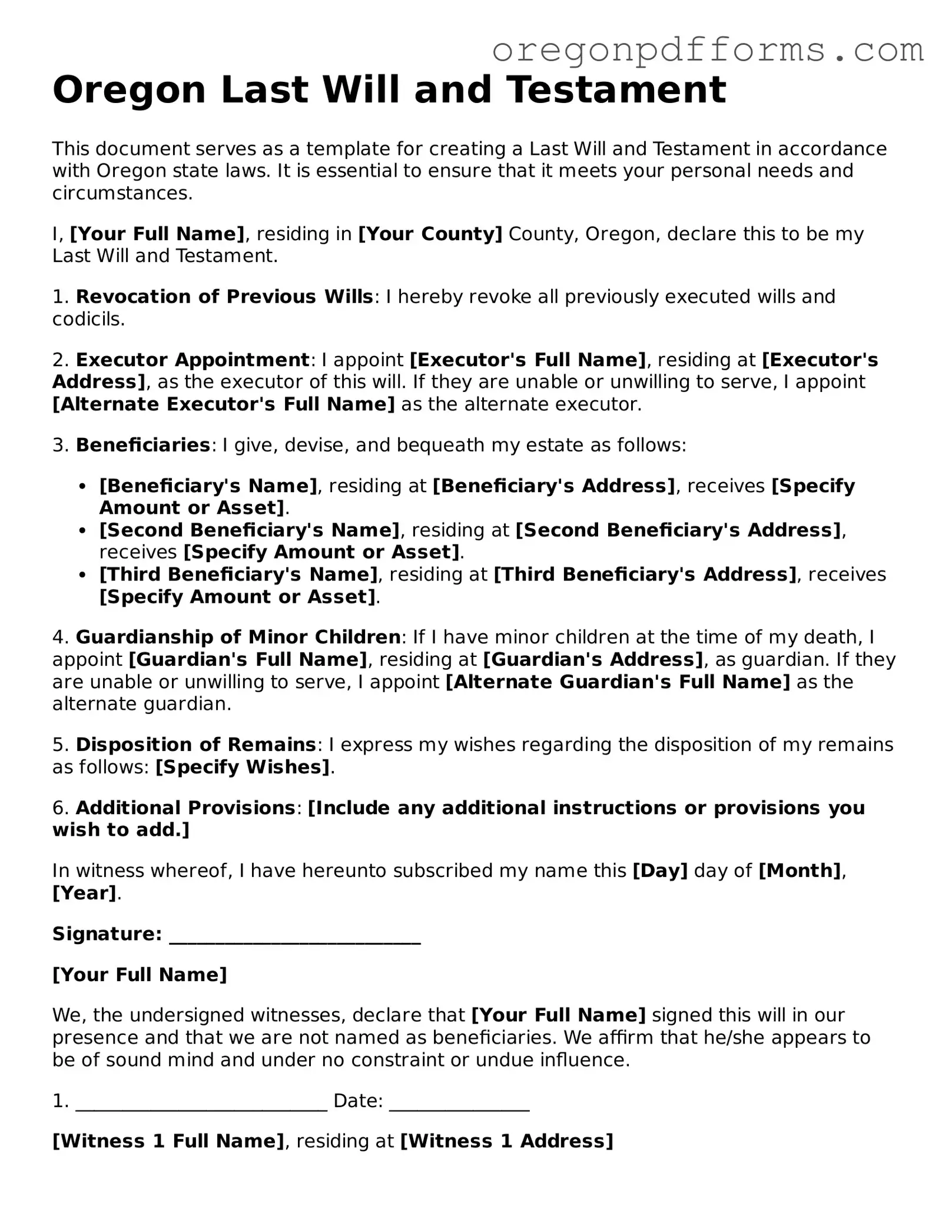What is a Last Will and Testament in Oregon?
A Last Will and Testament is a legal document that outlines how an individual wishes to distribute their assets after their death. In Oregon, this document also allows you to name guardians for minor children and designate an executor to manage the estate's affairs.
Who can create a Last Will and Testament in Oregon?
In Oregon, any person who is at least 18 years old and of sound mind can create a Last Will and Testament. It is important that the individual understands the nature of their actions and the implications of the will.
What are the requirements for a valid will in Oregon?
For a will to be valid in Oregon, it must meet the following criteria:
-
The will must be in writing.
-
The person creating the will must sign it or have someone sign it on their behalf in their presence.
-
The will must be witnessed by at least two individuals who are not beneficiaries of the will.
Can I change my Last Will and Testament after it is created?
Yes, you can change your will at any time as long as you are of sound mind. Changes can be made through a codicil, which is an amendment to the existing will, or by creating an entirely new will. It is advisable to follow the same formalities as the original will to ensure its validity.
What happens if I die without a will in Oregon?
If an individual dies without a will, they are said to have died "intestate." In this case, Oregon's intestacy laws will determine how the deceased's assets are distributed. Typically, assets will go to the closest relatives, such as spouses, children, or parents, depending on the family structure.
How do I revoke a Last Will and Testament in Oregon?
A will can be revoked in several ways in Oregon, including:
-
Creating a new will that explicitly states the previous will is revoked.
-
Physically destroying the will, such as tearing it up or burning it.
-
Executing a formal written statement that revokes the will.
Is it necessary to have an attorney to create a will in Oregon?
While it is not legally required to have an attorney to create a will in Oregon, consulting with one can be beneficial. An attorney can provide guidance on complex issues, ensure that the will meets all legal requirements, and help avoid potential disputes among heirs.
Can I include digital assets in my will?
Yes, you can include digital assets in your will. This may encompass online accounts, digital currencies, and other electronic files. It is essential to provide clear instructions on how you want these assets managed or distributed.
How can I ensure my will is carried out according to my wishes?
To ensure your will is executed as intended, consider the following steps:
-
Choose a trustworthy executor who understands your wishes.
-
Communicate your wishes to your family and loved ones.
-
Keep your will in a safe place and inform your executor of its location.
What should I do if I need help with my will?
If you need assistance with your will, consider reaching out to a qualified attorney who specializes in estate planning. They can provide personalized advice and help you navigate the complexities of the process, ensuring your wishes are honored.

